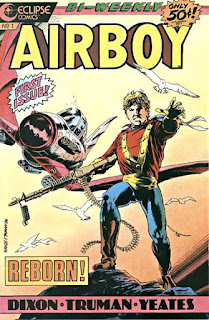MAKING ART: I was raised in a family that valued political integrity highly. Childhood memories of my mother's outrage at being asked to sign a "loyalty oath" during the McCarthy era (so she could work in a library, of all places) combined with what she had told me about life in Germany as Hitler rose to power, and i knew that fighting facism and repression were as important to life as . . . well, as life itself.
As i grew older, i saw a curious contradiction in the area where art intersects with politics. Art (by which i mean all art -- dream, literature, dance, painting, poetry and the rest) must be protected always from political repressives who would censor and destroy it because it may lead people into avenues of free thought and fellow-feeling. But the politics of struggle against severe violations of human rights often casts the role of art into doubt: will singing songs really end apartheid in South Africa?
At one time i saw the polarity of art versus struggle as epitomized in the difference between two towns in California -- San Francisco (where i was born) and Berkeley (where i was raised).
San Francisco, garbed in many colours -- not all of them in the visible spectrum -- represented the triumph of at over all . . . and it fell prey to art's lesser known nemesis, not repression but success. Berkeley, land of City Council meetings and student protests, was dangerous in its idealism: people were actually killed over trivialities such as public parks versus parking lots.
I left Berkeley when i couldn't take the tear-gassing anymore, but i didn't move to San Francisco, land of the lotus-eaters. Instead i chose to "live" my politics in a quiet environment and make what art i could with my own hands. That course of action kept me busy for a decade, sewing quilts and refusing to vote for military build-ups.
The trouble was, i needed more art in my life than i could make for me. I also needed more ways to work for the betterment of life than just saying "no" to local corruption and graft.
What i needed, and what i finally sought, was involvement with the larger scale arts and entertainments as well as the world arena of human interactions.
All of which leads me to a small transcendent moment in an old rehearsal room above the cracking-plaster decay of the St. Mark's Theatre in New York City a couple of days ago.
Dean's brother Jan Mullaney, former Eclipse Publisher, was at the piano. Sitting next to him were Mary Bracken Phillips, a singer and song-writer, and David Cooper, a singer. They were running through some numbers from the musical Jan and Mary had written, called "Cradle Song." As they worked at their lines and joked over their miscues, i felt a tremendous sense of peaceful well-being. I saw very clearly the similarities between their making of a musical and my daily work toward the making of comic books.
What i saw in that moment was the vast linkage of all people who have ever made art, and especially those whose goals included mass popular entertainment. The work behind the scenes to bring art of any kind before the public, the presentation of the piece in hope that someone who sees it will be aesthetically delighted and even emotionally moved, this is a very fine thing, that's all. It must be protected from dictators and thugs, it must be kept free from the taint of corrupt influence, and it must be open to anyone who wishes to participate.
Making art may be the best thing humans can do. It may also be one of the most political, because it insists on freedom in order to flourish. We need not condemn a governmental system for anything worse than its repression of art to demand its overthrow. Art is freedom and we shall be free.
catherine yronwode
On History: "Making Art" by Cat Yronwode
By Sean Kleefeld | Tuesday, February 28, 2017
1 comment
I happened across this Catherine Yronwode piece on the inside cover of Airboy #1 cover dated July 15, 1986. I'm not sure what exactly prompted her to write this at the time, but it seems to speak to 2017 pretty well, too, so I thought I would reproduce it here. (Note: Yronwode refers to herself throughout the piece using a lower case "I" in the original; I'm repeating that formatting, and a few other idiosyncrasies here.)







1 comments:
Hey, thanks for transcribing this. I just found it. Still true, by the way, and now it is 2022.
Post a Comment